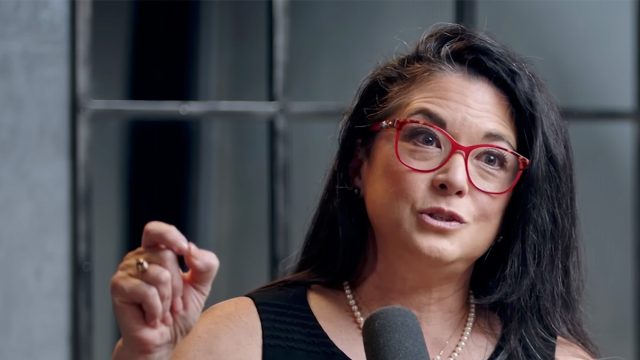This 30-Second Trick Burns More Fat Than Long Runs After 50
Worried about losing your strength and energy as you get older? Dr. Vonda Wright, a top orthopedic surgeon and researcher, has good news for you. Her work is changing how we think about aging and staying fit. In a chat with Steven Bartlett on "The Diary Of A CEO" podcast, Dr. Wright shared some surprising tips for burning fat and staying healthy as we age. Read on to discover proven strategies that can help you burn fat more effectively and improve your overall health, no matter your age.
The 30-Second Fat-Burning Secret
In the podcast episode, Dr. Wright reveals a quick way to burn fat that works better than long runs. She says, "You only have to do that for 30 seconds. That will burn 40% more fat than even high-intensity interval training." Here's how it works:
"When I'm done with that because that's good for my cardiovascular base, I punch it up to 11, and I go as hard as I can because I'm not very tall, and I don't want to fly off the back of the treadmill, but my heart rate goes up to about 186, and I keep it there for 30 seconds. What that does, that will burn 40% more fat than just even high-intensity interval training, which is done at about 80%."
Try this twice a week: sprint as hard as you can for 30 seconds, then rest for 2-3 minutes. Repeat a few times.
Stay Strong as You Age
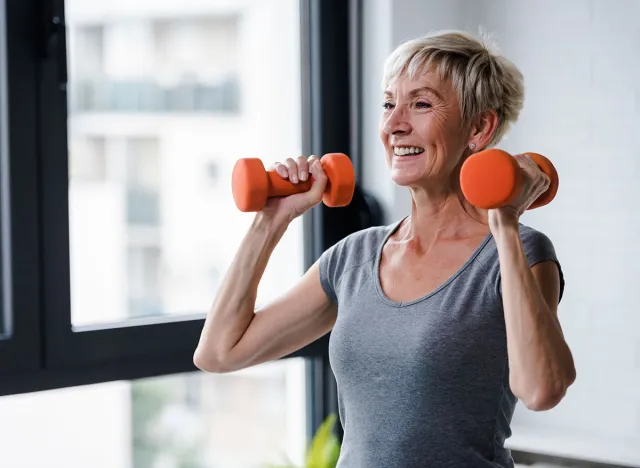
Getting older doesn't mean you have to get weaker. Dr. Wright's research shows we can stay strong for longer than we think. She states, "We have no excuse until our mid-seventies for slowing down." In fact, "if you're an 80-year-old consistently lifting weights, you are functionally as strong as a 60-year-old person who doesn't."
The FACE of Healthy Aging
Dr. Wright uses the word FACE to help us remember four key things for staying healthy:
F – Flexibility and stretching
A – Aerobic exercise
C – Carry weights (strength training)
E – Equilibrium and balance
She says, "There are four components that we should try to find time for. Number one is flexibility and dynamic stretching… A is aerobic… C is this weightlifting we talked about… E is equilibrium and balance."
Why Muscle Matters
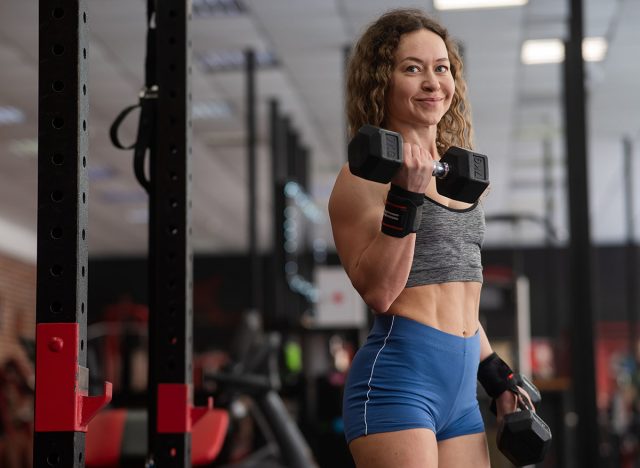
Keeping your muscles strong is super important as you age. Dr. Wright explains, "We know from other people's studies that lifting weights consistently infers a 20-year advantage, such that if you're an 80-year-old consistently lifting weights, you are functionally as strong as a 60-year-old person who doesn't."
This is especially true for women going through menopause. Dr. Wright says, "We know that without estrogen, we can lose two to 3% of our muscle mass, and rapidly during this period, we have estrogen is an anabolic steroid. It's made for muscle building through the mTOR system."
Her advice? "We must lift as heavy as our bones will let us."
Boost Your Metabolism with Strength Training
WebMD supports Dr. Wright's focus on strength training: "To boost your metabolism, try strength training and lifting weights. Building muscle mass also helps your body burn more calories, so you don't convert them to fat as easily."
Eat Right to Age Right
What you eat matters, too. Dr. Wright suggests eating "one gram of protein per ideal body pound" and avoiding sugar. She warns, "Sugar is a huge inflammatory which increases your arthritis pain." Don't forget fiber: "30 grams of fiber, so that just means complex carbs. Your microbiome needs fiber."
RELATED: I Lost 22 Pounds in 3 Months and Feel Amazing With These 17 Hacks
The Importance of Protein as You Age
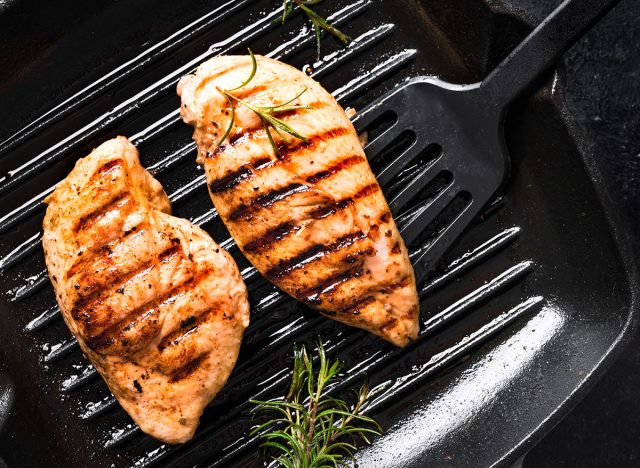
Alex Oskian, a registered dietitian, agrees with Dr. Wright on the importance of protein, "As you age, you require more protein to build or maintain muscle. A good rule of thumb is to include a protein food (animal or plant-based source of protein) at all meals and snacks."
Stay Above the Frailty Line
Dr. Wright talks about something called VO2 max and the "frailty line". She explains, "Fragility means you get older, slower, weaker, you lose your functional capacity. 25% of all people are frail and unable to live independently by the time they're 85, not on my watch."
To avoid this, try VO2 max training: "It's four minutes as hard as you can go, torture, and then you recover for four minutes, only four minutes, and then four minutes as hard as you can go."
Watch Your Weight for Joint Health
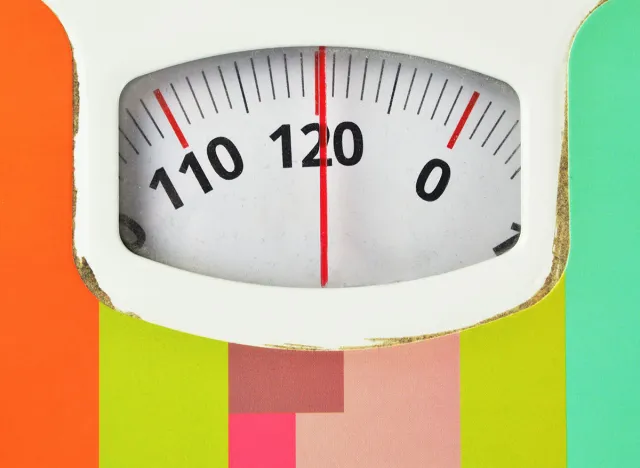
Extra weight can really hurt your joints. Dr. Wright explains it this way: "If you gain one pound, this rock is one pound, you would think that this is all the amount of pressure you're going to feel. But because of the mechanics, what you actually feel is the weight of these bricks, which is nine pounds."
So, losing even a little weight can make a big difference for your joints.
The Power of Hydration
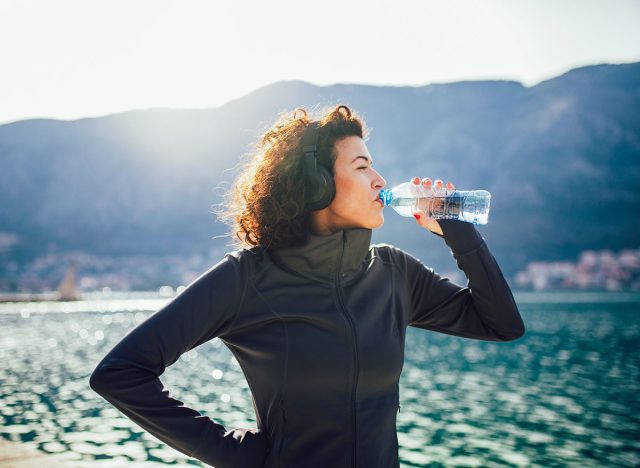
The National Council on Aging (NCOA) underlines the importance of staying hydrated: "Some evidence suggests that drinking water before a meal can curb your appetite to help with portion control."
RELATED: 10 Daily Routines That Helped Me Shed 80 Pounds After 50
Women and Menopause: What to Know
For women going through menopause, Dr. Wright has some important info: "80% of all women going through perimenopause, we'll experience what the term we've coined the musculoskeletal syndrome of menopause."
This can affect your muscles, bones, and joints. But with the right exercise and diet, you can stay strong and healthy.
The Role of Hormones in Weight Management

Sarah Hormachea, a registered dietitian, speaking to the National Council of Ageing, says: "Female hormones like estrogen play a significant role in weight maintenance and boosting metabolism. As estrogen levels decline during menopause, the challenges of weight loss can intensify."
The Importance of Regular Check-ups

Regular medical check-ups are crucial for tailoring your weight loss approach, especially as you age. They can help you monitor your overall health and adjust your strategies as needed.
RELATED: Jordyn Ray in 2-Piece Workout Gear Shares 4 Mistakes She Stopped Doing to Lose 20 Pounds
Focus on Sustainable Changes
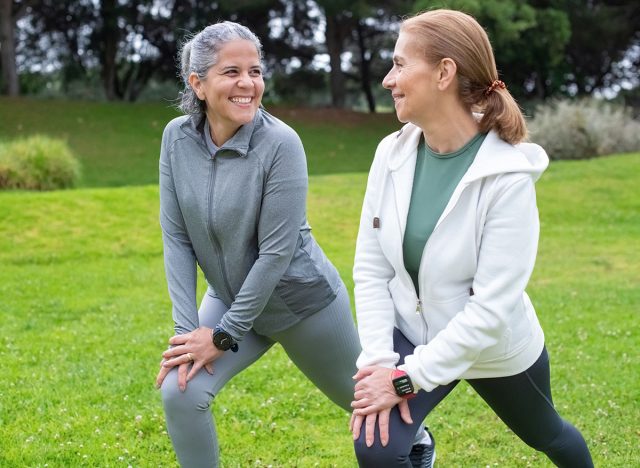
Dr. Phyllis Pobee, a family medicine physician, offers this encouraging advice: "You're not just losing pounds—you're gaining life. Focus on sustainable changes that celebrate your body. Small, consistent tweaks over time can lead to remarkable transformations."
By following Dr. Wright's advice on quick sprints, strength training, eating right, and staying active, along with the additional tips from other experts, you can burn fat faster and stay healthy as you get older. It's never too late to start taking care of yourself! And if you enjoyed this article, don't miss I Hit 60 and These 15 Anti-Aging Foods Keep Me Fit and Feeling 20 Years Younger.
